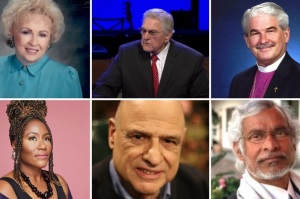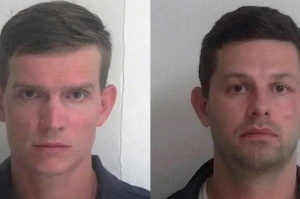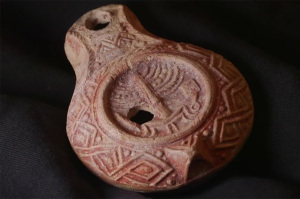Lecrae, John Lewis on Race Tension: Non-Violent Revolution Has Heavy Price, May Take Lifetime
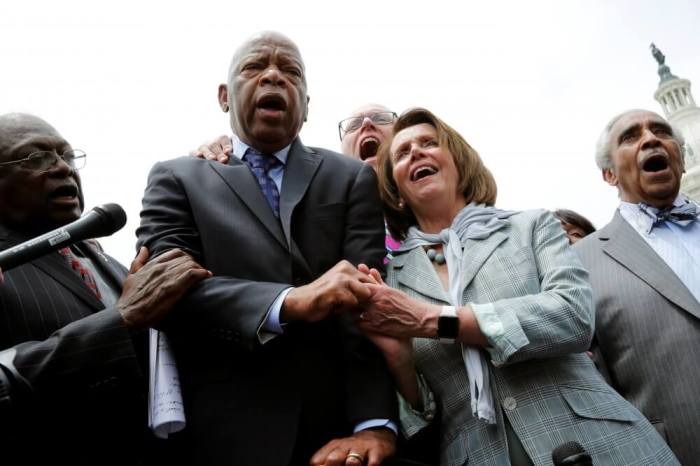
Many Americans seem to be splintering into opposing factions when it comes to race: Black Lives Matter, Blue Lives Matter, All Lives Matter. In response, Christian rapper Lecrae, Rep. John Lewis (D-Georgia) and Jeff Shinabarger, founder of Atlanta-based non-profit Plywood, recently engaged in a candid conversation that focused on race, non-violence, and love over hate.
Racial tension has been at an all-time high with the recent police shooting deaths of African Americans by white officers and the subsequent killings of white police officers by African Americans. Lecrae pointed out today's perceived civil rights injustices and the desire for immediate retribution, which often leads to more violence.
The rapper sought the insight of civil rights icon Rep. John Lewis on how he and fellow activists of his time handled such issues through non-violence.
"We've seen a lot of people wanting to respond to brutality with immediate action," Lecrae said. "When you all (Lewis and other civil rights activists) were walking in the way of non-violence and peace, how did you respond to a lot of the opposition that said this was too slow of a process, or not immediate enough, or [that] it wasn't bringing the results that you wanted to see?"
Lewis explained that achieving peace in America is a measured, ongoing effort.
"During that period we had to say over and over again that the struggle to redeem our society is an ongoing struggle. It is a struggle of a lifetime. If you want to create a society at peace with itself. The means, the method must be one of love, one of peace, one of non-violence."
The congressman, who grew up in rural Alabama, explained how he began his nonviolent fight for civil rights. After he had graduated high school and applied for admission to Troy State College (now Troy University) he never heard back from the institution and had essentially been ignored.
Lewis wrote a letter to Dr. Martin Luther King, Jr. who responded and sent along a round-trip ticket to visit him (King) in Montgomery. King, who then dubbed Lewis as "the boy from Troy," explained that if Lewis pursued his interest in being admitted to Troy State College the lives of his family could be endangered, he could be beaten, or his family's home could be burned down. Lewis' family feared for their safety.
"They didn't want anything to do with my attending Troy University," he said. "So I continued to study in Nashville." He said he began to study the principles of Ghandi, Dr. Martin Luther King, Jr. and Rosa Parks.
That's when Lewis and others began to engage in peaceful protests.
"We started sitting in at lunch counters and restaurants. And we'd be sitting there in an orderly, peaceful, non-violent fashion waiting to be served. And someone would come up and spit on us, or put out lighted cigarettes in our hair or down our backs. Pour hot water, hot coffee, hot chocolate on us."
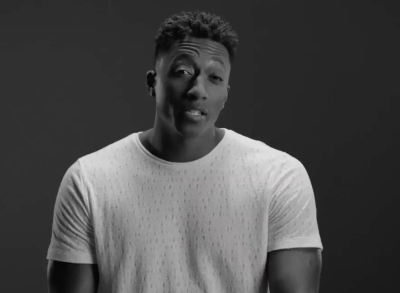
"And we kept sitting in. And one day we heard that if we continued to sit in we would be arrested."
But instead of feeling caged in or trapped by being arrested, Lewis said his time behind bars only gave him a sense of freedom.
"Going to jail, getting arrested, I felt free. I felt liberated. I felt like I had crossed over."
In another instance, this one more violent against the peaceful protestors, Lewis explained that on a trip to test the 1961 U.S. Supreme Court decision to end racial segregation on public buses they were severly beaten after they entered the segregated South.
"Along the way we arrived in a little town called Rockhill, South Carolina ... We started entering a so-called White waiting room and we were attacked and beaten and left lying in a pool of blood. The local police officials came up wanting to know whether we wanted to press charges. We said, 'No. We believe in a way of peace. In a way of love. In a way of nonviolence.'"
Lewis said that in February 2009, he had an encounter with one of the people who had assaulted him that day.
"He was in his seventies. Came with his son — he was in his forties." He said, "'Mr. Lewis, I'm one of the people that beat you and your seat mate. Will you forgive me? I want to apologize.' His son started crying. He started crying. I said, 'I accept your apology. I forgive you.' They hugged me. I hugged them. It is the power of the way of peace, the way of love, the way of non-violence."
Jeff Shinabarger noted how, in today's society, people often want to bring about positive change but are unwilling to do the work necessary to bring it to fruition. He asked Lewis how he overcame fear and hesitation during those trying times.
"If you want to bring about a non-violent revolution — the revolution of values, the revolution of ideas — you have to be prepared to pay a price. It may mean going to jail for a few days, or a few weeks, or a few months. It may even mean death. But you have to believe in something that is so precious — almost sacred, that you're willing to give it everything you have."
He added that maintaining the proper mentality is key. "It's also this feeling that: I'm like a tree planted by the rivers of waters. I'm anchored. You come to that point and you say, 'I cannot turn back. I'm not going to give up.'"
Lewis also said that people shouldn't be afraid to speak up about injustices. "When you see something that is not right, not fair, not just, you have to do something, you have to say something ... You have to keep making some noise. Sometimes I say, 'We are just too quiet.' It's time for us to get in trouble. Good trouble. Necessary trouble ... It is better to love than to hate, and hate is too heavy a burden to bear ... "
For future generations, Lewis shared the message. "Be kind, never hate, it's better to love. Never give up. Never become bitter, never become hostile, and hold on to your dreams."
Below is the interview with Lecrae, Rep. John Lewis and Jeff Shinabarger

















